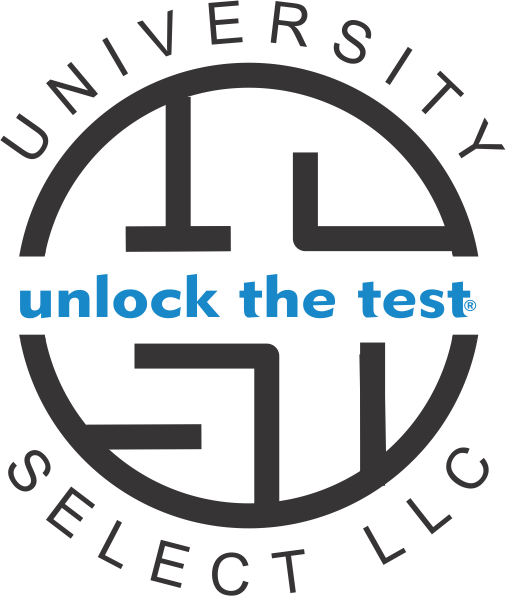“Is it better for my child to take the ACT or the SAT? Which is viewed preferentially by competitive institutions? ”
The tests are interchangeable. There is no daylight between the ACT and the SAT in the eyes of a college admissions officer. All that really matters is the test on which your student got the better score! A number of score comparison charts are available online, although neither testing company offers official score conversions between the tests.
“Can you help me choose which test my student should take?”
We can offer guidelines. We begin with a set of general ground rules, before offering a list of student-specific factors to consider.
General Ground Rules:
It is best practice to have a student take both the SAT & ACT.
However, a student should generally not prep for both tests at one time. The tests are quite different, and require different strategies and forms of practice.
Once a student has gauged their score mobility on both tests, we recommend a focus on one over the other.
“SO - Isn’t there some test that can predict whether my student will do better on the SAT or ACT? ”
Unfortunately, no. There is no equivalent of a Hogwart's sorting hat.
“Why can’t my student just take the tests and see which one results in a better score?”
Even if students took a full SAT & ACT sample tests, the scores would not reliably predict whether a student would ultimately do better on one test over the other.
A clear score baseline for the SAT or the ACT emerges only after an initial series of study - typically, 4 tutoring sessions or a boot camp.
This is because a student's first score on an SAT or ACT score is much less important than their score mobility, or the rate of score growth on their diagnostic tests.
In other words, when students take an initial SAT or ACT tests with no test prep, their score potential remains unclear. Those scores are muddied by the distinctive challenges offered by each test.
“Can you give us some examples of why an initial ACT or SAT score might not represent an accurate baseline score? ”
Yes. The ACT challenges students by applying a significantly greater degree of time pressure. Students often fail to complete the questions on several ACT sections. As a result, we can only see a student's true score baseline after they have learned and applied our analytics-based time management strategies.
The SAT, instead, challenges students to use elements of logic and critical analysis, often dressing up question types to appear different or harder than they are. As a result, a student may know much of the tested material on the SAT, but may not realize it! An initial series of sessions can start the process of translating your classroom knowledge to the SAT - applied to the question types that represent a student's most efficient score gains. How quickly a student's diagnostic scores move allows us to extrapolate how high their score can go.
“So, what test should my student start with? ”
It depends. But below is a list of student-specific factors to consider.
FIVE Student-Specific Factors:
Does your student work quickly? Or slowly, but more analytically? At its most reductive, the ACT differs from the SAT because the ACT applies greater time pressure to questions that are – on average – easier. As a result, if the personality of a student is such that time pressure is a hurdle, the SAT might be a good starting place, particularly if a student is comfortable in a more analytical mode.
A second factor to consider is the relative proportion of math on the SAT versus the presence of the ACT science test. The SAT is 50% math, with math making up just 25% of the ACT. Of course, students taking the ACT will encounter the Science Test, which has no corollary on the SAT. In short, students encounter more (and generally harder) math on the SAT, while they need to grapple with the Science Test on the ACT.
Follow up question - Is your student more comfortable with broad memorization of math principles (breadth of coverage = the ACT) or is your student better at identifying patterns and cues (figuring math out = the SAT).
Follow up note - The ACT Science test is not a substantive test of knowledge. You don't necessarily need to be a great science student to do well in it (although, familiarity with the general subject matter can be a confidence boost). It is a test of reading comprehension and data interpretation.
A third factor to consider, in consultation with your guidance counselor, is the differing rates with which the ACT & the SAT grant time accommodations. If your student has (or has applied for) an IEP in the classroom (a time accommodation based on a diagnosed learning disability), it is worth noting that accommodations on the SAT are near automatic, whereas the ACT seldom grants accommodations – most likely because time pressure is an important factor to the ACT. However, if attained, the ACT accommodated testing format is very favorable. So be sure to speak with your counselor.
A fourth factor is based on our informal observation that – if students feel relatively equally comfortable with both tests – starting with the SAT, and moving to the ACT, can make for an easier transition. Roughly, where the student is trained to deal with the harder questions offered by the SAT, the student can often be better able to manage time pressure on the ACT, because the questions themselves feel somewhat easier.
A fifth -- and probably the most important -- factor is actually pretty simple: which test does your student prefer? In which test do they feel more at home? Qualitative considerations matter. A student usually knows themselves and their learning style pretty well.
